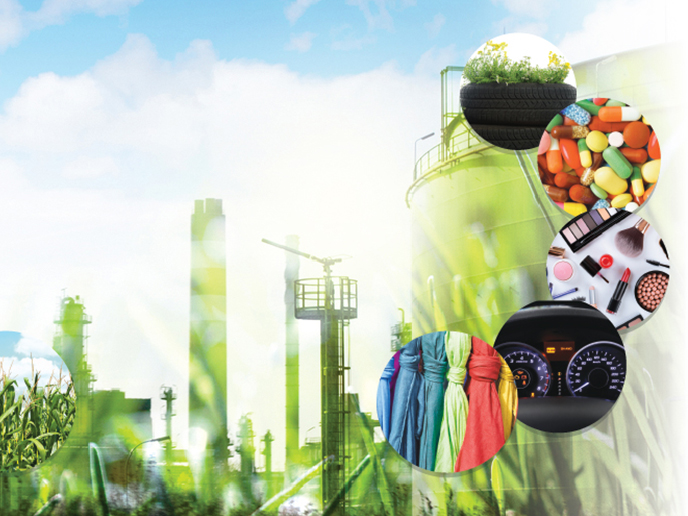Bio-based innovation builds Europe’s bioeconomy
Bio-based innovation is also bringing a further paradigm shift to the bioeconomy by moving beyond biomass processing to harness nature’s biological processes and principles. Scientists are now working to overcome current limitations in bio-based technologies and better understand mechanisms and processes at the genetic and molecular levels, enabling them to learn from nature and create or improve industrial processes. Advances in bioscience and biotechnology are being used to develop products and processes for high value market applications. They include bioactive compounds for health, cosmetics, personal care; dietary components such as prebiotics, flavours, nutritional ingredients; biopolymers, fragrances; eco-friendly compounds, agrochemicals and coatings. Europe's bioeconomy is currently worth EUR 2.2 trillion and employs 18.6 million people across the bloc.
Nature supplies solutions: research pipelines lead the way
This CORDIS Results Pack highlights 16 EU-funded projects, 4 of which are implemented via the Bio-based industries Joint Undertaking (BBI JU) – a public private partnership of the EU and the Bio-based Industries Consortium (BIC). These projects have considered the use of innovative biological processes and principles - derived from terrestrial and aquatic organisms - for the development of high value applications. Initiatives, such as BIOOX for example, have developed biological enzymes for the industrial-scale production of chemicals, biopolymers, fragrances and other consumer products in bio-reactors. NewFert used biowaste to produce new green fertilisers. OPTIBIOCAT sifted through the genomes of fungi and bacteria for suitable biocatalysts for use in cosmetics. SmartLi developed technologies for using lignins as raw materials for biomaterials. SUSY cut the cost of biotechnology processes involving glycosylation by exploiting the unique properties of sugar-modifying enzymes, with applications in the food, chemical, pharmaceutical and personal care industries. PROVIDES employed new natural solvents to improve energy efficiency in the pulp and paper industries. PUFACHAIN devised a complete procedure using microalgae as a sustainable source of purified polyunsaturated fatty acids for high-value nutrition and pharmaceutical applications. BISIGODOS produce valuable algae-derived chemicals, amino acids and bio-resins for coatings, printing, food, and haircare and adhesive applications. BIOWAYS increased public awareness of bio-based products and applications. A generic pipeline taking bioactive compounds from discovery to industrial valorisation was created by DISCO, which employed the latest technologies to deliver sustainable bio-sources for high-value plant-derived products. TriForC also built a pipeline to identify and utilise plant-sourced triterpenes, with potential applications in drug design and use in agriculture as biopesticides. The PROMYS project developed synthetic biology-based platforms in the form of optimised cell factories for fermentation, industrial and pharmaceutical applications. Finally, nature inspired, environmentally friendly, high performance anti-fouling coatings were developed by BYEFOULING for use on ships and marine infrastructure.



